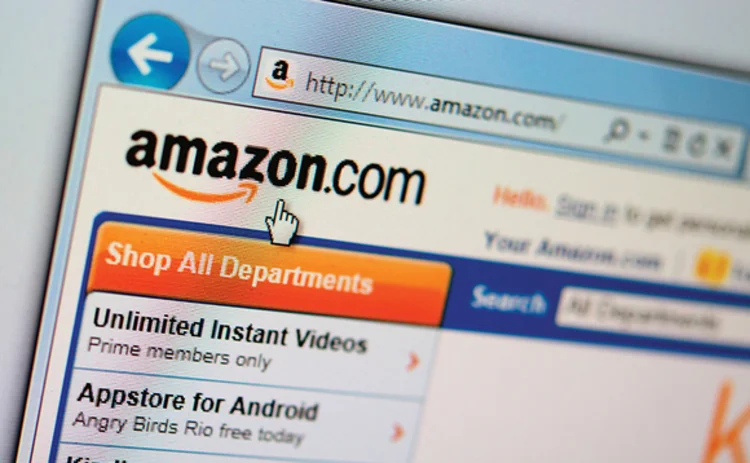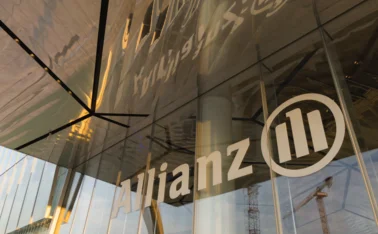
Analysis: How Amazon could make waves in claims

With talk abound of a possible Amazon entry into insurance distribution, what could an Amazon entry into claims look like?
Amazon has previously approached insurers to pitch for a motor managing general agent ‘beauty parade’. Most recently, a report by Reuters has suggested the company is looking to enter insurance as an aggregator challenger.
When contacted by Post, Amazon declined to comment on the reports that it is considering entering the distribution space, or any aspect of insurance.
However, consultancy firm Altus has touted the idea that Amazon could make an entry into the claims management space (see infographic below).
The internet giant already has many capabilities and infrastructure it could build on in order to enter the claims management space. The research highlights that its Amazon Web Services division provides cloud computing solutions, while it has options open to it across its existing consumer offerings.
It has an arsenal of technology, data and customer relationships. If it chose to combine these, Altus believes that Amazon could make waves in claims.
FNOL advantage
The tech giant has strong branding and customer recognition. In a first notification of loss situation, this could be to its advantage.
Claimants could get in touch with Amazon a number of ways, Altus suggests. Its smartphone app could use biometric authentication via a fingerprint. Its voice recognition virtual assistant Alexa could allow Amazon to use artificial intelligence and intelligent question sets to triage claims. The web giant could also use chatbots or allow customers to contact customers through its website. Amazon could also receive an automatic notification that a claim needs to be made from a smart home device, in a similar way that Homeserve’s Leakbot lets users know when there is a water leak by sending an alert to their smartphone.
Assessment
Amazon is now the fifth largest retailer in the UK, behind the big four supermarkets. It may not be the very top of the pile, but it has reservoirs of personalised data on customers’ online purchases.
An Amazon claims function could cross-reference losses against someone’s buying history, Altus suggests. This could allow it to create a more efficient loss validation process.
Amazon may not have a ready-made claims assessment engine, but Altus has concluded that the pieces are there. Its AWS Machine Learning services are able to handle complex ranges of data. This could include customer forms to loss adjuster reports.
It also has near-unlimited access to storage space, alongside its analytical capabilities. In addition, photo and video recognition technology is readily available to Amazon.
The research suggests that it would be prudent for Amazon to invest in further data to align prices with the fluctuating trade prices across regions.
Combining its technological assets, Altus expects that Amazon would have few problems with building a claims assessment tool.
Reinstatement
Contents is the obvious and easiest route for Amazon to target where it comes to claims and other possible ways of entering insurance, according to Altus consultant Patrick Hayward.
However, he suggests that its Home Services Offering could present a way for it to tackle more complex areas such as building repairs.
Home Services has recently been launched in the UK. It first debuted in the US in 2015. The service allows consumers to search and purchase services such as cleaning, plumbing and other repairs. This could potentially be key for risk assessment, claims prevention, property repairs and loss analysis.
Amazon’s domination of the retail market could enable it to keep replacement and building costs either in line or below the market average, Hayward expects. In addition, some of the procurement costs could be shed, as it already carries out strict checks on tradespeople before they are able to advertise their services.
If it were to go down this route, one thing that Amazon may have to consider he believes is setting up an insurer panel within its Home Services network.
Risk management
Amazon currently installs smart locks, smart security systems and video doorbells through its Home Services offering. It sells leak detectors and smart alarms through its marketplace.
With the connectivity of its cloud services and its customer know-how, Altus thinks it could develop a capable risk management platform.
Talent
However, while Amazon has the technological capabilities to shake up claims, there is a missing piece of the puzzle, according to Hayward.
He said: “The missing element is knowledge and experience of claims management.
“What it does have is some of the potential infrastructure to be able to deal with claims management, fulfilment and risk prevention through market, the recently launched Home Services and its Smart Home offerings. With the right personnel, it could be in a position apply its tech and supplier management capabilities in the development of a claims operating model.”
Amazon has made efforts to build on its team with new hires with insurance knowledge. In November last year it went on a recruitment drive for experienced insurance professionals based in London.
Daniel Schreiber, CEO of New York-based insurtech start-up Lemonade has previously hit out at Amazon over its attempts to attract insurance staff. Schreiber claimed it was trying to “poach” Lemonade’s employee.
Even with the right team behind it, Hayward believes it is hard to predict how long it would take Amazon to make an entry into claims management. Insurers may not want to hold their breath just yet.
Hayward said: “This really depends on the route it takes to enter the market – providing a white label product with an insurer’s backing would be the fastest route, becoming an aggregator would require time to integrate with a number of insurers, and creating a new insurer would be a lengthier process in terms of developing/ repurposing its operations and gaining regulatory approval. We would expect it to choose one of the faster routes initially, but would not be surprised to see the company move into different parts of the value chain once it develops an understanding of the data.”
Experimentation
If Amazon were to wade into the market, most insurtech experts suggest that personal lines would be the most natural fit for it. However, tech companies are known for their willingness to experiment and innovate. With hundreds of billions of pounds behind it, Amazon could eventually target the increasingly commoditised SME market.
For Hayward, home and contents would be a more obvious place to enter, while motor poses more challenges.
Hayward added: “An observation on tech firms like Amazon is that it is maybe more willing to dip its toe in the water and experiment in order to gain a foothold in the market, and then its business model may change over time.”
“Household products are probably most closely aligned to Amazon’s current proposition, in terms of its access to purchase history, property location data. It’s probably not as big a stretch to it to apply that knowledge in the home market as motor, which is also a difficult market to enter and become profitable. While commercial lines for SMEs has become more commoditised, it will represent another step in terms of complexity, and is not as natural fit with its retail experience.”
Not an obvious route
While Altus’ research suggests that Amazon could build a strong claims proposition, industry experts do not necessarily see claims as the most obvious route for Amazon to go down.
Capital Law insurance partner Nick Pester sees an Amazon entry into insurance as “inevitable”. Its recent reported interest in distribution suggests this. He sees gadget insurance as the most sensible entry point for it.
However, Pester believes that it would be more likely to pay claims as and when, rather than becoming involved with adjusters except in the most complex of cases. It could look to quick pay-out methods, such as those used by insurtech Lemonade.
Pester said: “Whether or not it will go down the full carrier route, I suspect that it probably will not. It has the money to do it without a doubt, but that is not really what it is about. As I see it, it is a lifestyle management company. Its ultimate goal is to effectively control all of us and whatever we buy and whatever we do. If you are going to do that then risk management is obviously a massive piece. I would anticipate that it will start out with gadget insurance.”
He added: “When it comes to claims, it will just pay them. Unless it’s something which is extortionately expensive. My experience of Amazon has always been that if something hasn’t been delivered – it’s got lost in the post or it’s the wrong thing, it just pays it. It’s not worth the hassle for it because the margins are so small. It makes more money dealing with things immediately. “
“It will use adjusters very sparingly if at all, and only for the largest type of loss. Otherwise it will use automatic processing like Lemonade for a lot of its claims.
“Amazon has a very strong brand and it is not stupid enough to sully that. Which is why it will probably just pay stuff off the hip. In time I strongly believe it will end up having a full service platform for individuals. At some point it will get into banking as well. It wants to be there for individuals whenever they need.”
Be prepared
While an Amazon entry into insurance distribution would potentially see it acting as a partner to insurers, this could be very different if it goes into claims.
Hayward said: “Amazon could provide claims management to insurers as an outsourced service partner, but this approach would not allow it to make the most of its brand or existing customer base. If it did decide to manage claims, it may at a later stage decide to create this as a product, as a service to the industry.”
Whichever areas of insurance Amazon may choose to target, insurers need to be prepared, according to Guidewire chief marketing office Brian Desmond.
Desmond told Post: “Altus’ paper is an interesting review of the possible roles Amazon could play. Insurance has many characteristics that serve as a moat, for example regulatory knowledge and compliance, domain knowledge, existing books of business and so on. But this is a moat Amazon can cross, picking and choosing the roles that it wishes to play.
“Ultimately, it will be healthy for insurers to explore partnership opportunities, while also assuming Amazon will become a direct competitor at some point. Doing so removes the worry and enables insurers to focus on ensuring they have the right strategy, skills, and partners to be successful in their own mission. Put another way, this path is the best way to insure themselves against a worst case scenario Amazon strategy.”
Desmond added: “Whether Amazon will underwrite and distribute insurance under its own brand is less clear for now, regardless of the existence of Amazon Protect. You must never underestimate Amazon but running a successful insurance business is about having an ongoing customer indemnification operation that can step in when customers need help to make a claim and enable them to do this according to their preference via multiple channels. Insurance is more than just about making a product an easy buy which is Amazon’s forte.
“But, my best advice for insurers on the Amazon ‘threat’ is don’t procrastinate and do assume that Amazon will do the thing that you find most terrifying. Amazon will try to eat your lunch. Just write it down and take that question off the table. For example, if you sell motor and home insurance, assume that Amazon will compete directly in your market, at point of sale and throughout the lifecycle, in the next few years. And then use your assumption to define and implement your business strategy with urgency. This approach means you can turn your mind to questions that are more productive and with a sharpened sense of urgency. Even if your assumption is incorrect, your business will be better for the thinking and what you do about it as a consequence.”
Only users who have a paid subscription or are part of a corporate subscription are able to print or copy content.
To access these options, along with all other subscription benefits, please contact info@postonline.co.uk or view our subscription options here: http://subscriptions.postonline.co.uk/subscribe
You are currently unable to print this content. Please contact info@postonline.co.uk to find out more.
You are currently unable to copy this content. Please contact info@postonline.co.uk to find out more.
Copyright Infopro Digital Limited. All rights reserved.
As outlined in our terms and conditions, https://www.infopro-digital.com/terms-and-conditions/subscriptions/ (point 2.4), printing is limited to a single copy.
If you would like to purchase additional rights please email info@postonline.co.uk
Copyright Infopro Digital Limited. All rights reserved.
You may share this content using our article tools. As outlined in our terms and conditions, https://www.infopro-digital.com/terms-and-conditions/subscriptions/ (clause 2.4), an Authorised User may only make one copy of the materials for their own personal use. You must also comply with the restrictions in clause 2.5.
If you would like to purchase additional rights please email info@postonline.co.uk







